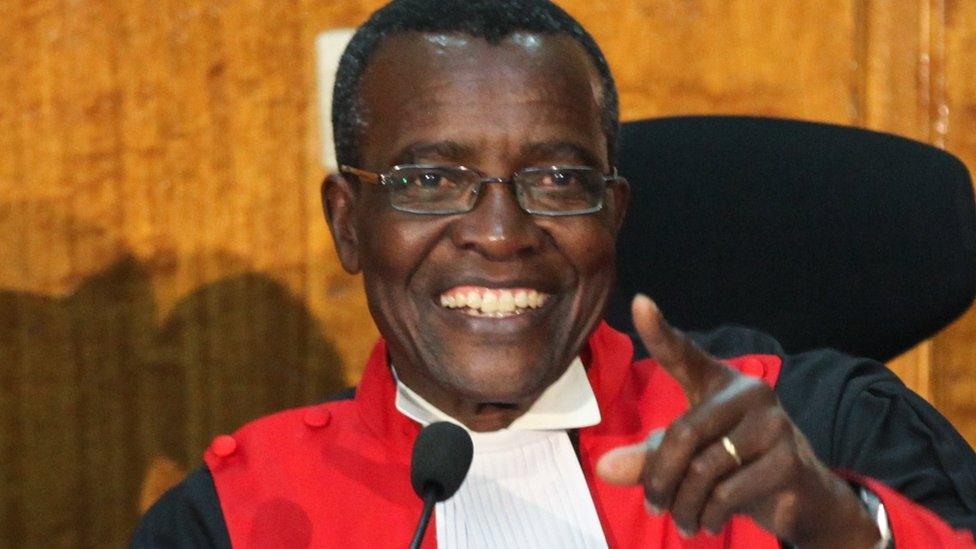Kenya election: Turnout under 34% amid opposition boycott
- Published
Africa Editor Fergal Keane visits two very different Kenyan polling stations
Kenya's electoral commission says fewer than 34% of registered voters took part in Thursday's re-run of the presidential election.
The figure is sharply down on the initial poll in August, when nearly 80% of the electorate voted.
The main opposition coalition had called for a boycott of the poll.
Voting has had to be suspended indefinitely in four areas where opposition supporters have been clashing with police.
Electoral commission head Wafula Chebukati had wanted voting in these opposition strongholds to go ahead on Saturday, but said he had to postpone it again because persistent insecurity made it too dangerous for his staff.
President Uhuru Kenyatta is seeking a second term. Opposition leader Raila Odinga has pulled out of the contest.
At least two people have been reported killed in the violence, including a teenage boy shot by police during clashes in the opposition stronghold of Kisumu.
Some opposition supporters also prevented people from voting, despite Mr Odinga's calls for them to stay away.
The BBC's Tomi Oladipo in the capital, Nairobi, says that even in some areas where there was calm, voter fatigue and a loss of faith in the electoral process meant turnout was still low.
Kenya opposition supporters bring machetes and rocks to election protests
The electoral commission has seven days to declare the results once all voting is complete.
President Kenyatta was declared the winner in an August vote, which was annulled because of "irregularities".
After casting his vote Mr Kenyatta said the country was "tired of electioneering" and it was "time we moved forward".
What role has ethnicity played?
BBC Kenya analyst Dickens Olewe says turnout was high in regions where President Kenyatta's Kikuyu community and Deputy President William Ruto's Kalenjin community reside.
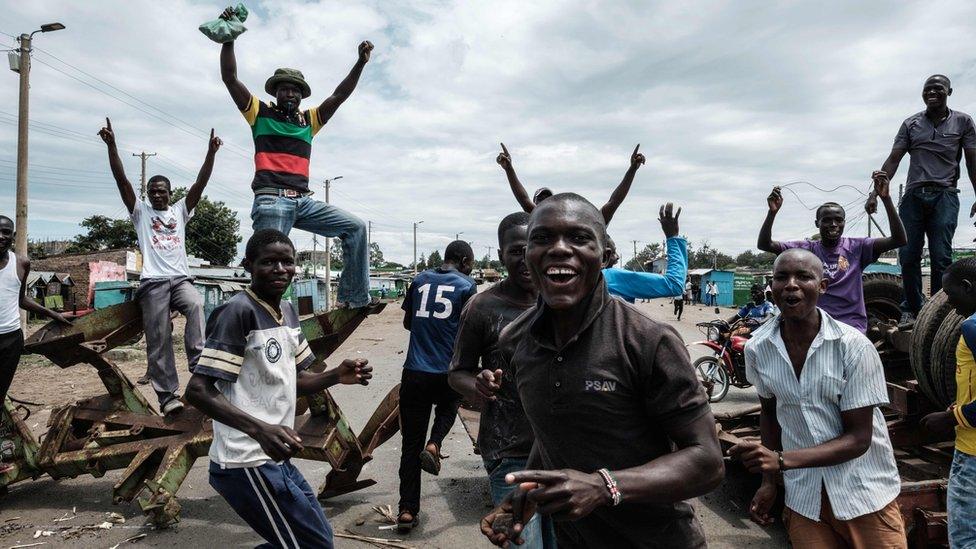
There was a near total boycott in some western areas
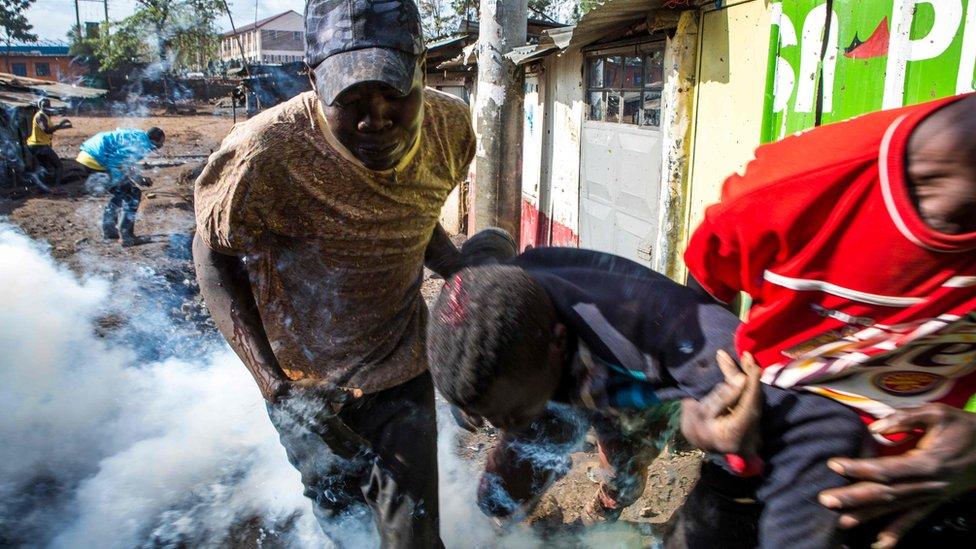
There were also clashes in the Kibera area of Nairobi
In parts of western Kenya where Mr Odinga's Luo community is mostly based, there was a near total boycott of the poll.
Ethnic-based politics is deep-seated in Kenya, fuelled by the illusion that if "one of us" is in power then people from that community will benefit, he says.
What has happened since the first vote?
About 50 people are reported to have been killed in violence since Mr Kenyatta was declared the winner in August's election.
Last week, a senior member of the IEBC fled to the US amid death threats.
Mr Odinga had wanted the repeat ballot to be held at a later date, but a bid to delay the election re-run fell apart after only two of seven Supreme Court judges attended a hearing on Wednesday.
One judge, Deputy Chief Justice Philomena Mwilu, failed to appear after her bodyguard was shot and wounded by unknown gunmen on Tuesday.
Why is there an election re-run?
Kenya's Supreme Court took the unprecedented decision to annul the August presidential election and demand a re-run in September citing "irregularities and illegalities".
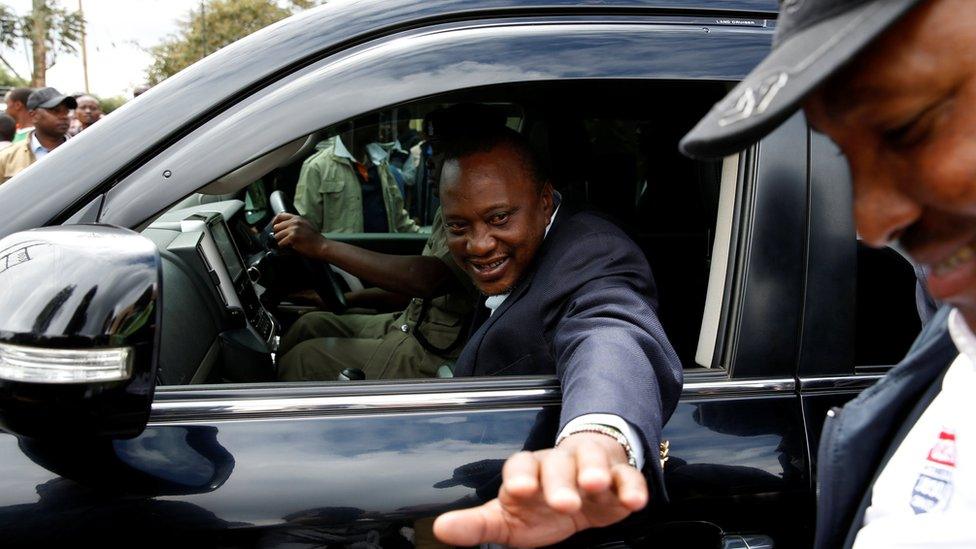
Mr Kenyatta said Kenya was "tired of electioneering"
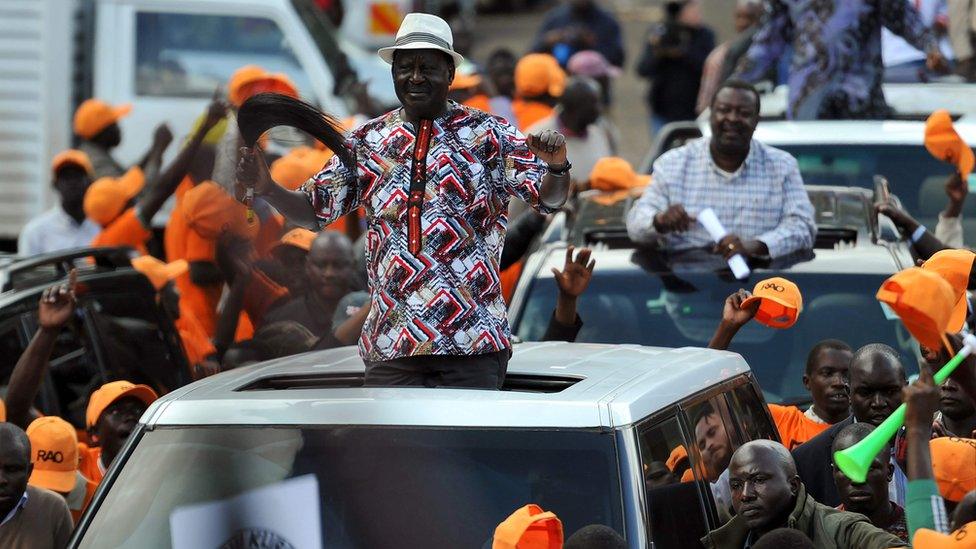
Mr Odinga boycotted the poll
The ruling did not attribute any blame to President Kenyatta's party or campaign.
Mr Odinga has said that the electoral commission failed to make the changes needed to prevent a repeat of the mistakes that marred the earlier poll, although the commission disputes this.
His opposition coalition - the National Super Alliance (Nasa) - made clear its participation in the election was contingent on reforms being made.
- Published26 October 2017
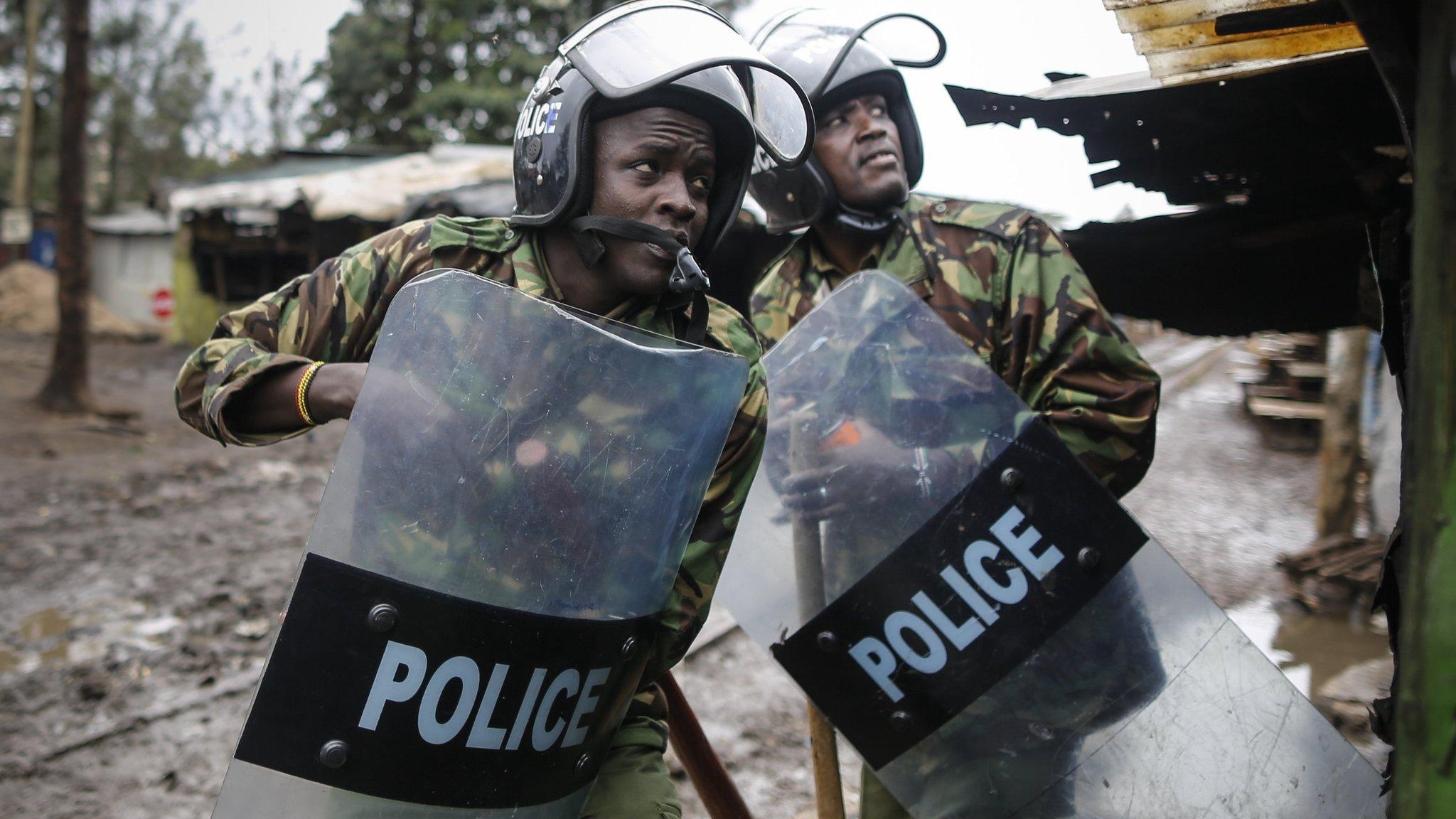
- Published26 October 2017
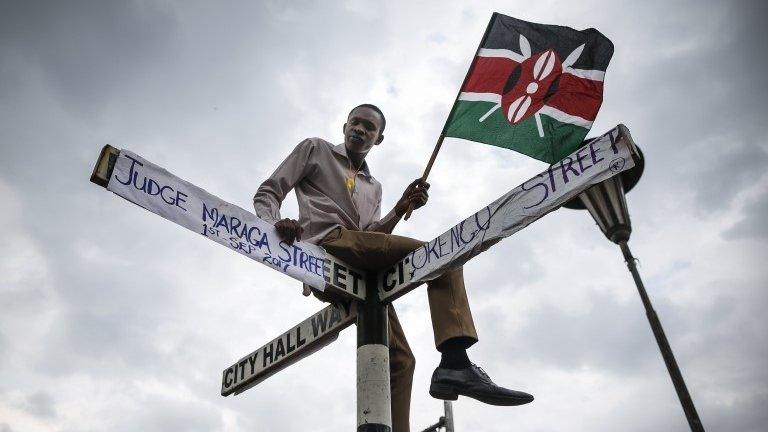
- Published25 October 2017
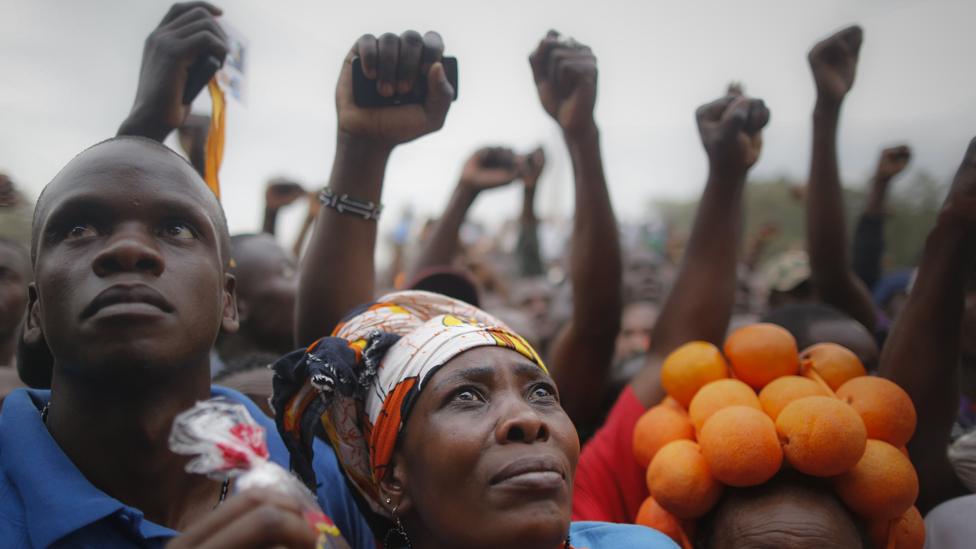
- Published22 August 2022
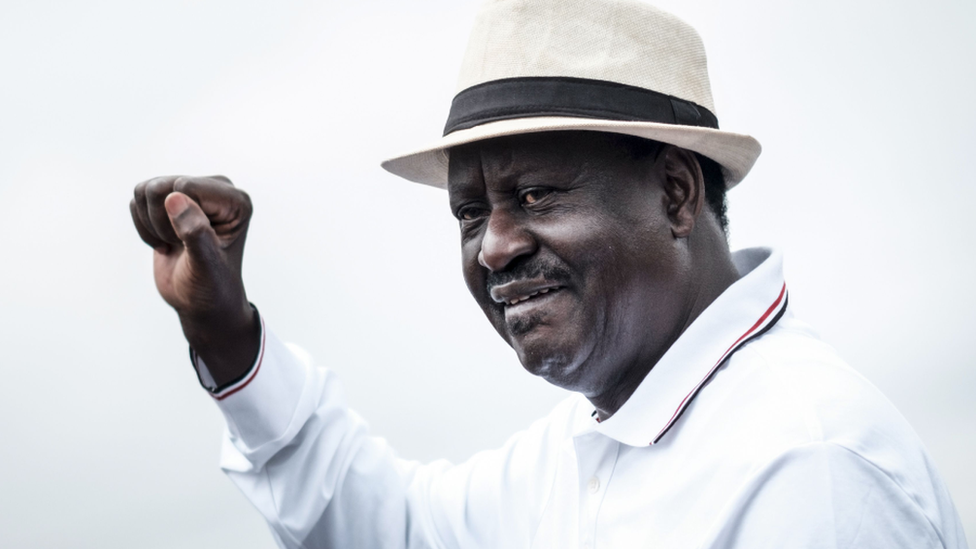
- Published27 November 2017
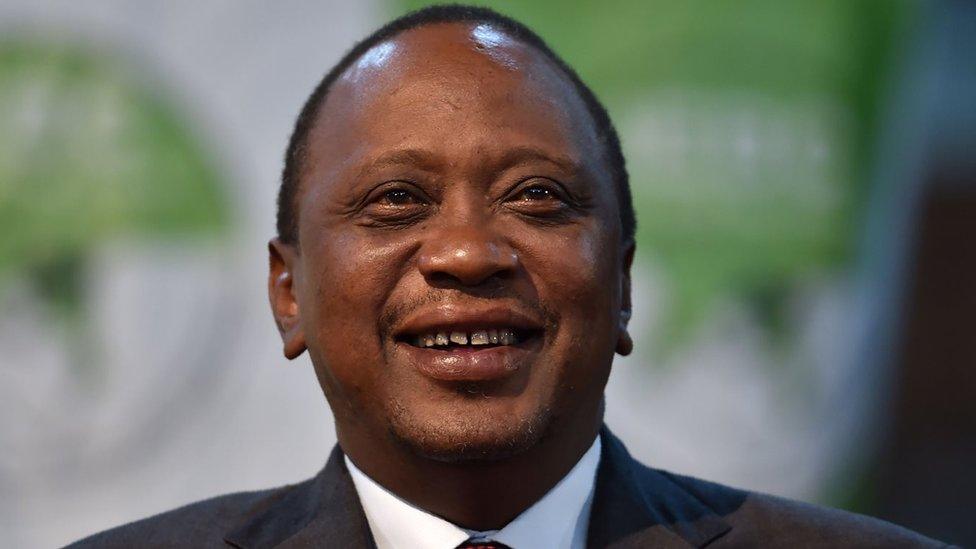
- Published2 September 2017
